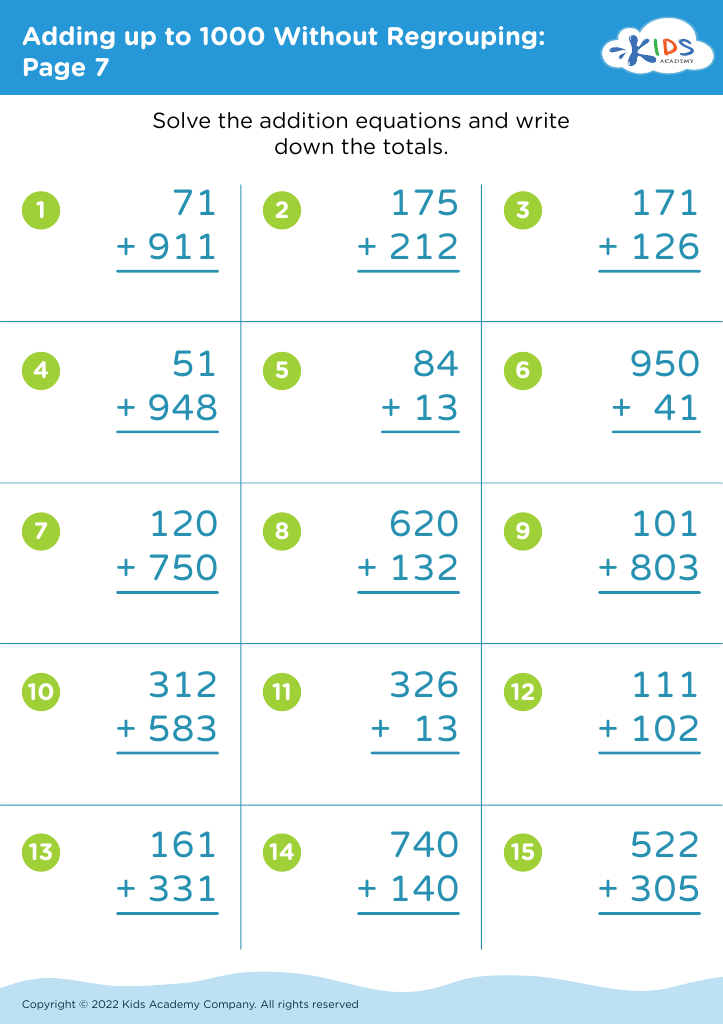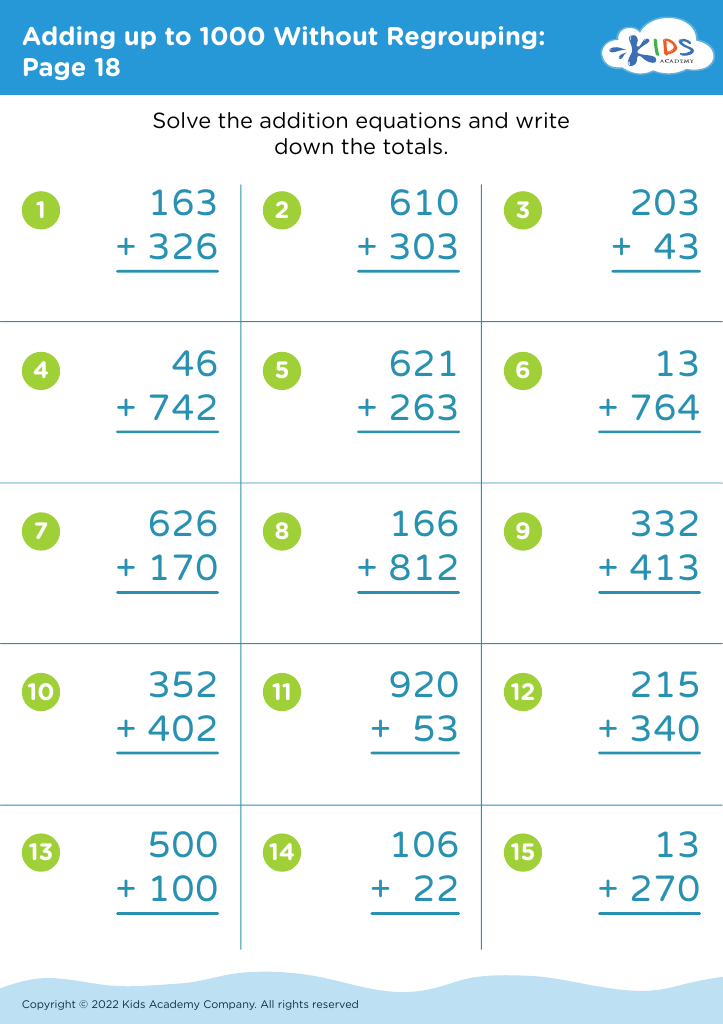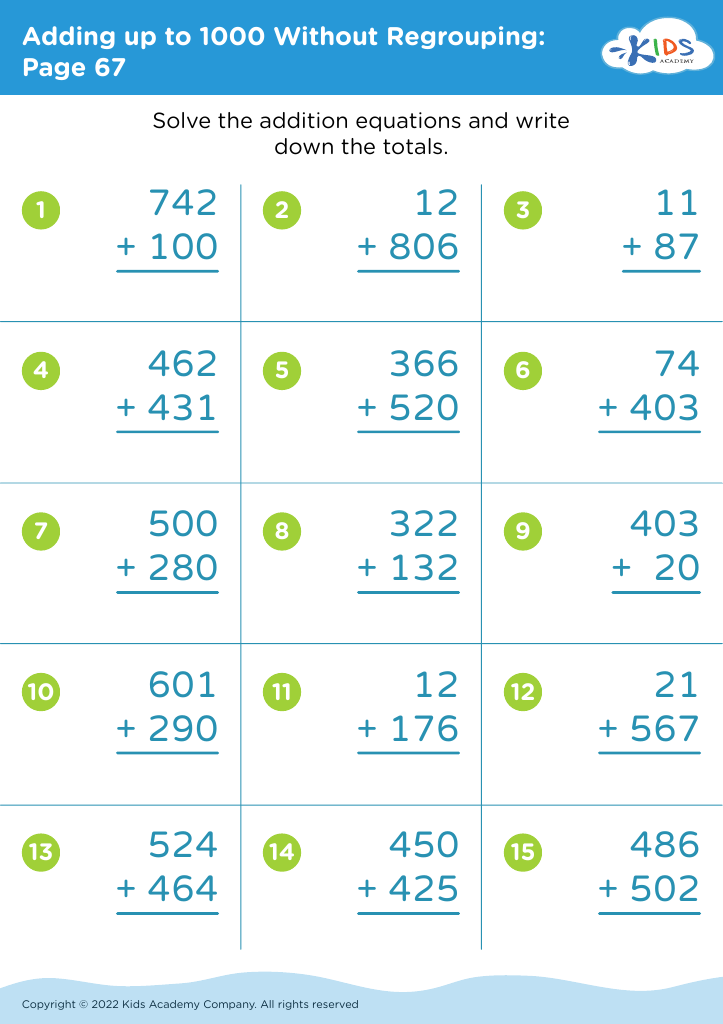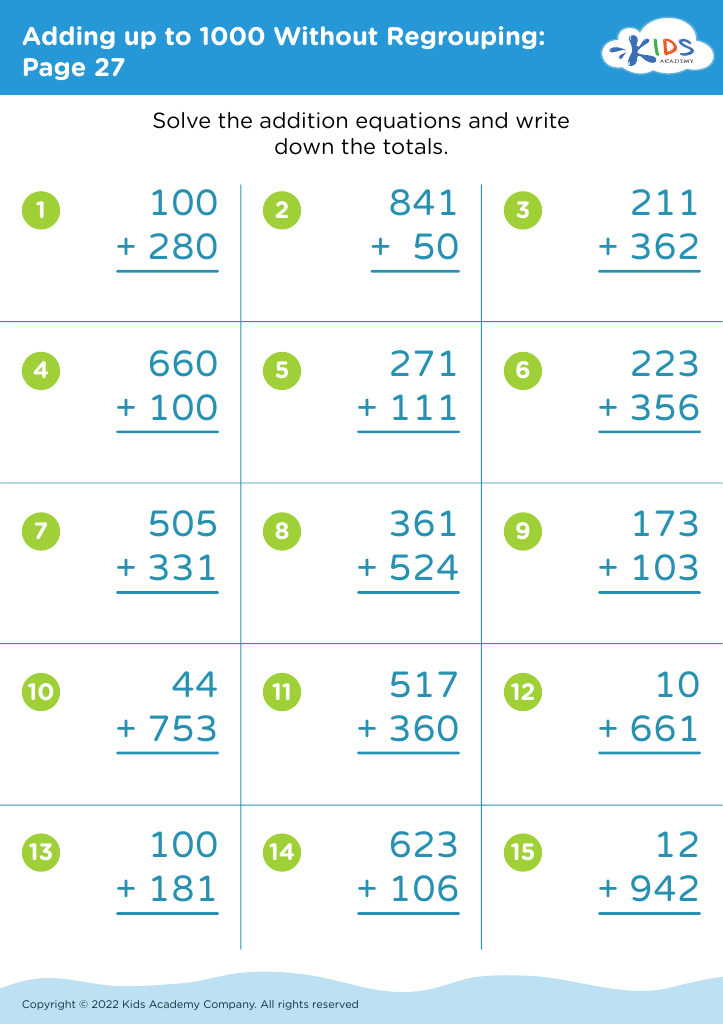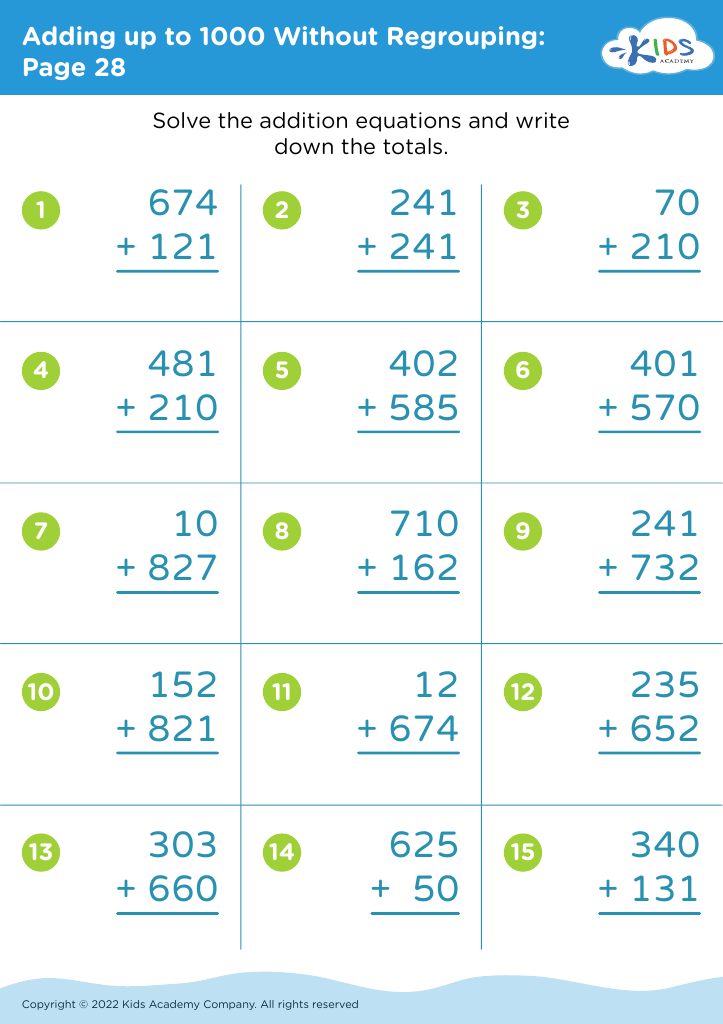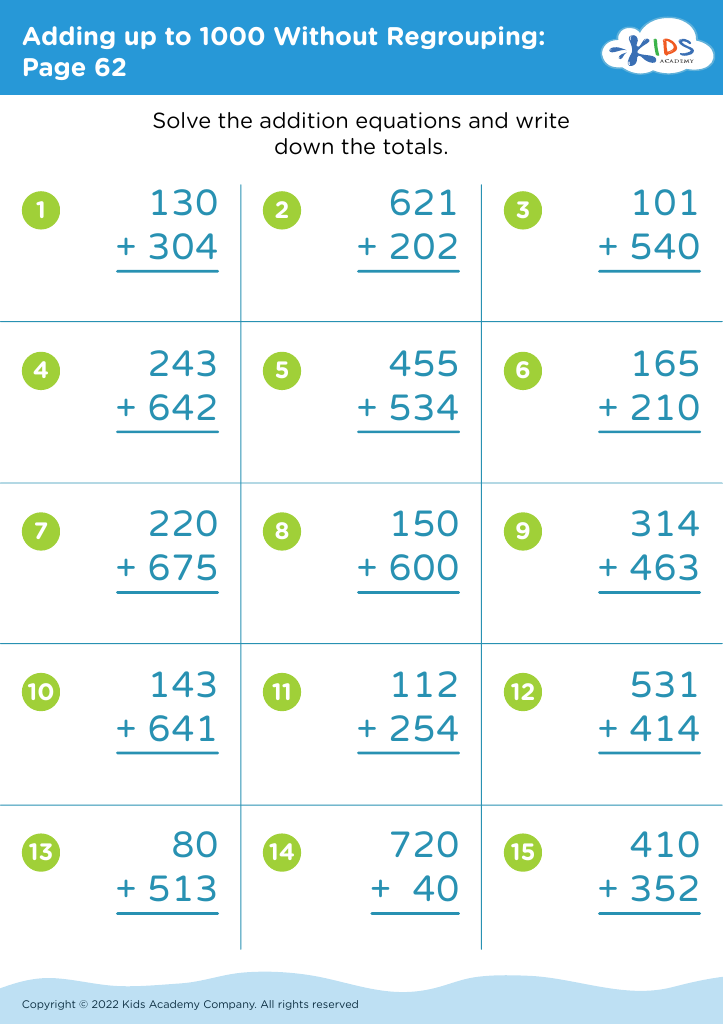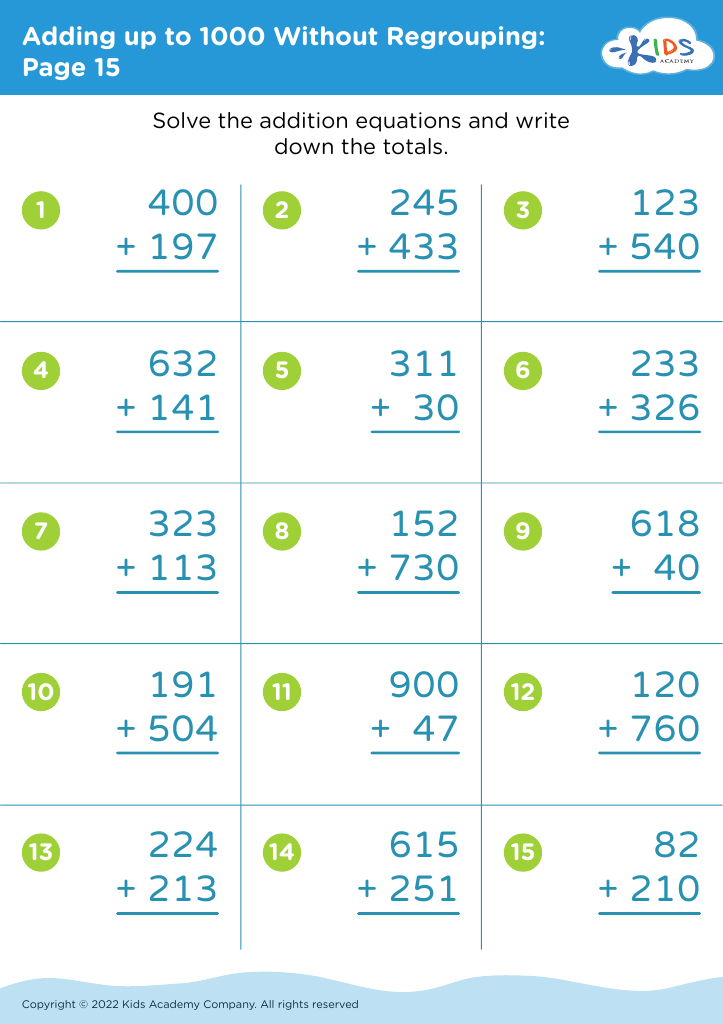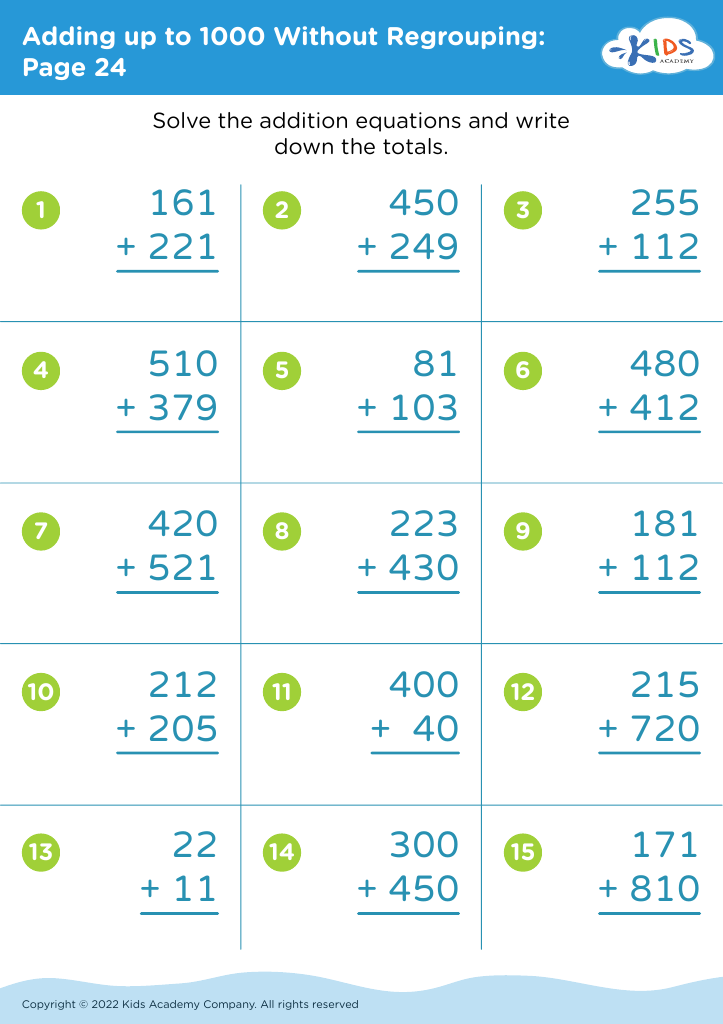Understanding fractions Adding up to 1000 Without Regrouping Worksheets for Ages 4-9
13 filtered results
-
From - To
Explore our "Understanding Fractions: Adding Up to 1000 Without Regrouping Worksheets" designed for children aged 4-9. These engaging activities introduce young learners to the fundamental concept of fractions through hands-on practice. The worksheets aim to enhance children's understanding of how fractions work and their relationship to whole numbers, all without the complexity of regrouping. With colorful illustrations and child-friendly instructions, these resources promote essential math skills and boost confidence in tackling larger numeral challenges. Foster a love for math while helping your child grasp the basics of fractions in a fun and stimulating environment. Discover the joy of learning fractions today!
Understanding fractions, especially adding them up to 1000 without regrouping, is crucial for children aged 4-9 for several reasons. First, mastering fractions lays the foundation for essential math skills they will encounter in later grades. Fractions are integral to various real-life situations, such as cooking, shopping, and crafting, making them highly applicable.
At such a young age, children are typically beginning to form their mathematical identities. Positive early experiences with fractions can lead to increased confidence and a better attitude towards math as they grow. Conversely, difficulty in understanding fractions can create barriers to success in more complex mathematical concepts, leading to frustration.
Teachers and parents help children recognize patterns and relationships in numbers, enabling them to understand parts of a whole and make comparisons. Fraction literacy at this level paves the way for more advanced concepts, such as operations with larger numbers and algebraic thinking.
Moreover, engaging children in activities involving fractions fosters critical thinking and problem-solving skills. Encouraging collaboration with peers while learning fractions can also enhance their social skills and mathematical discourse. Therefore, it’s vital for adults to prioritize fraction education during these formative years.


